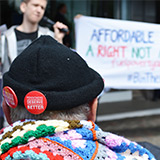
After years of campaigning, London activists recently secured a commitment from the city’s mayor to create a publicly-owned municipal energy company. James Angel of Switched On London explains what energy democracy means in the age of Brexit and Trump.
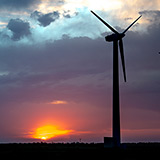
Economist Robert Pollin joins us to introduce a new series on the promise—and practicalities—of a Green New Deal. We also get an update from Standing Rock, where the fight against the Dakota Access Pipeline continues.
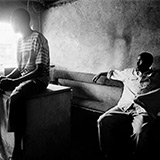
The Nubian community has lived in Kenya for over a hundred years, yet many became stateless after Kenya’s independence in 1963. For years, Nubian youth had to go through a nationality verification process called “vetting” in order to obtain a …
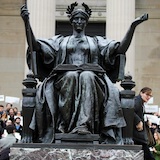
Lindsey Dayton from the Graduate Workers of Columbia joins us to talk about the recent NLRB ruling that graduate students who work for private universities are employees and have the right to unionize.
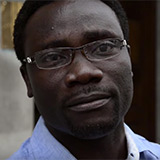
Leading Nigerian climate activist Ken Henshaw discusses fossil fuel resistance and the uphill battle for energy democracy in Africa’s largest oil-producing region.

Leading climate scientist Michael Mann explains what “runaway” climate change, feedback mechanisms, and tipping points actually mean—and why there’s still hope.

The U.S. military is one of the world’s top consumers of fossil fuels. But it has also done pioneering research on climate change, revealing how deeply connected climate disruption is with other forms of social and political turmoil. Michael Kazin interviews climate scientist and longtime Pentagon official Jeffrey Marqusee.
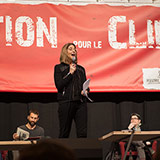
In an extended interview, author and activist Naomi Klein discusses the Leap Manifesto, and what it will take to get us to a just, carbon-free world.
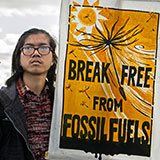
In the inaugural episode of Hot & Bothered, we explore the growing fight against fossil fuel extraction, with guests Bill McKibben and Tara Houska.
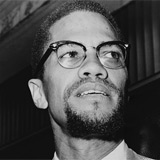
On the broad American left, internationalism used to be as common—and as essential—as breathing. What happened?
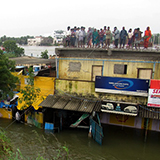
Last December’s floods in Chennai illustrated the devastating consequences of a development model that puts profits before people. But they also hinted at what a democratic response to climate disaster might look like.

Beyond the delegate race lies the Sanders campaign’s larger potential: that a rising generation will emerge from it to transform American political life in ways that until recently seemed impossible. Here’s where they might start.

Join Dissent writers, editors, and fellow travelers for a panel discussion and after-party to launch our Spring issue, The Fight for Climate Justice, and our new climate podcast, Hot & Bothered. From the Tar Sands to Energy Democracy: Visions for the …

Any serious effort to keep global warming below catastrophic levels requires an unprecedented challenge to the fossil fuel industry from the grassroots. It also requires a vision of what the post-fossil future will look like.
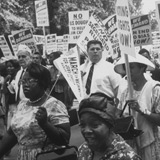
Social change is seldom either as incremental or predictable as insiders suggest. Instead, movements win by changing the political weather, turning demands considered unrealistic into ones that can no longer be ignored.






















